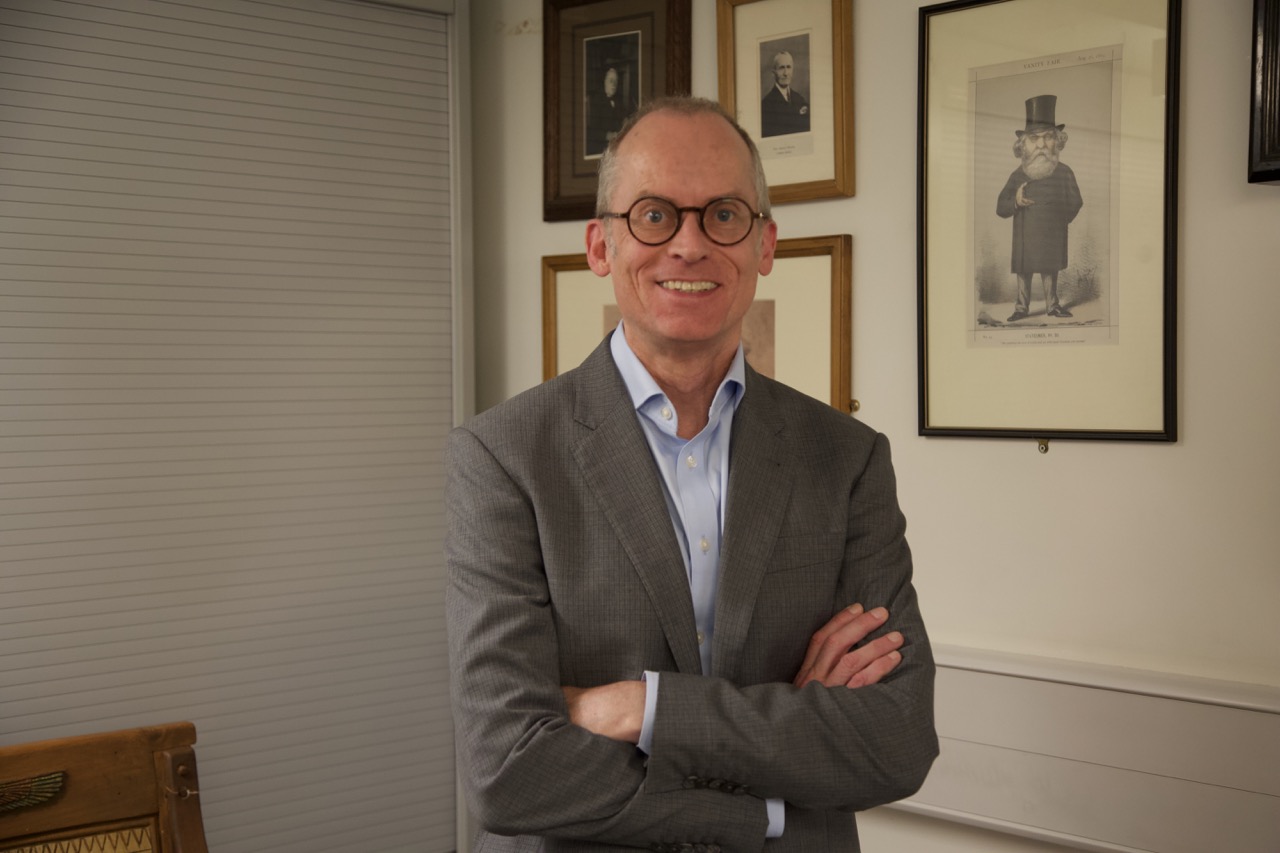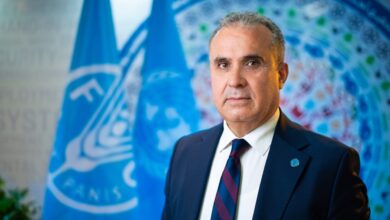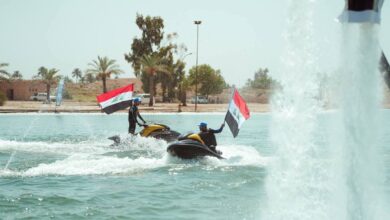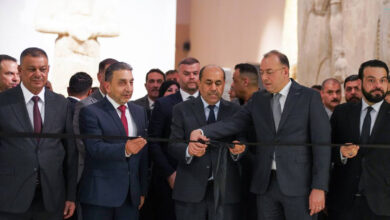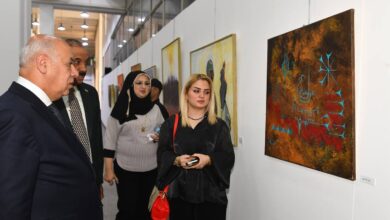In an exclusive interview, Dr. Paul Collins, the chair of The British Institute for the Study of Iraq, speaks on the development of the organisation and its projects.
Q1. Could you tell us about the British Institute for the Study of Iraq?
So, the British Institute for the Study of Iraq is the UK’s only institution that’s focused on the research of histories, cultures, societies of Iraq of all periods, from deep prehistory to the now.
Q2. What’s the history behind the institute and when did it begin working in Iraq?
The institute’s history is quite old. It actually has its origins in what’s called the British School of Archaeology in Iraq. And this was established in 1932. So it’s part of the long history of relations between Britain and Iraq and, of course, emerged really out of the First World War and the British occupation and mandate control of Iraq. When Iraq was given independence by Britain, the British School was established to continue relations with archaeology in Iraq, and it was really founded as a result of funding left by the British writer and explorer Gertrude Bell. And she, of course, had been the Honorary Director of Antiquities in Iraq. And when she died in 1926, she left some money in her will to the British Museum to found the British School. And so it was a few years before that happened, but as I say, when Iraq got its independence, then the British School and was founded and began to excavate with, of course, the Iraqi authorities at some of the major sites in the country.
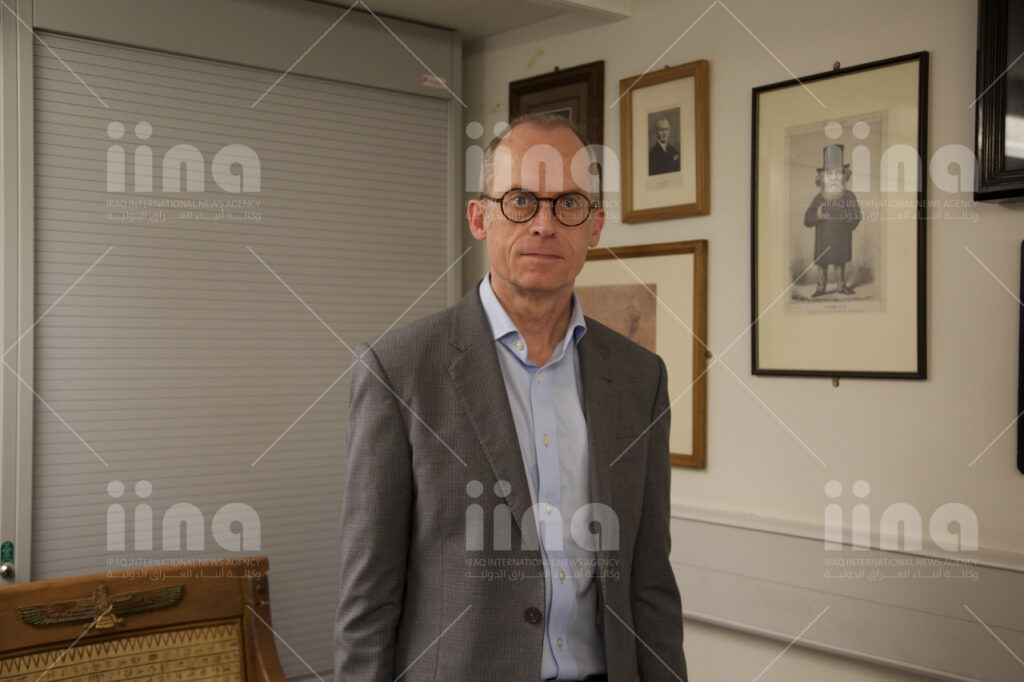
Q3. What are your long term aims for the institute?
Well, the long term aims really are tied very much to how the Institute was reinvented. In 2007, the British School of Archaeology had effectively come to an end. Excavation had proved, of course, very difficult because of recent political situations. And as a result, the institute was recreated to be the British Institute for the Study of Iraq. So rather than just focusing on archaeology and the ancient past of Iraq, it was decided instead we would look at the arts, humanities and social sciences across Iraq’s history. So all the cultures and societies and histories of this extraordinary country, from deep prehistory to the now. And that means that the remit was much, much wider and allows us to work with all sorts of very interesting projects and ideas right across the country.
Q4. How is your work different from other initiatives, other institutes?
Well, for this country, we’re quite unique in that we’re entirely focused on Iraq and thinking about all those heritage issues from, as I say, antiquity to the now, the social sciences, how people work together in Iraq. So we’re asking questions and funding research on those questions, which no one else is doing in this country. So I think that makes us rather special. And in addition, we’re what’s called a British International Research Institute, which means we get some funding from the British Academy and that allows us, again, to have a base and to work with colleagues in other institutions, as were for a global reach. So the networks we have in Iraq are much, much wider and broader as a result.
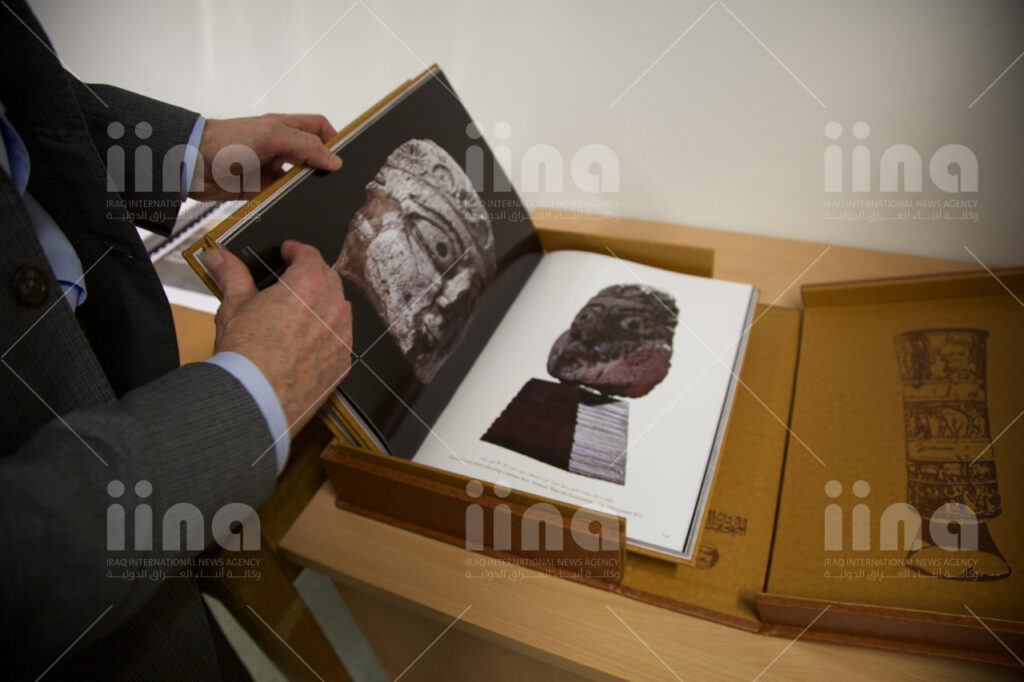
Q5. What are the current significant projects of BISI occurring in Iraq?
We have lots of interesting projects. We fund projects every year. So there are short term projects, and these are for researchers based in this country to either work on ideas from the United Kingdom or else, of course, travel to Iraq and work with colleagues there around research projects. And they range from, as I say, short term projects, which may be focused on one community, one element of Iraq’s story, or longer term projects, which could be archaeological or surveys or longer term research. And at the moment, we’ve got a couple of interesting projects. One, focusing in on Mosul and thinking about what post conflict Mosul looks like and could be from a political and social sciences angle, and another looking at the Palaeolithic Age, so deep prehistory of the western desert of Iraq and seeing, of course, where the origins of both hunter gatherers and then ultimately settled communities emerged. So two ends of time. And I think that sums up very much what the institute is about supporting.
Q6. What are the main challenges faced in carrying out projects?
Well, of course, the challenges are getting less in many respects over the last few decades, and we are building a strong network of colleagues across the country. The British Institute and the British School before. It of course had long, long tradition of working with colleagues in Iraq universities, museums, other heritage sites. But now, of course, with our wider remit, we’re opening up possibilities of engaging with other collaborators in the country and of course, inevitably with research projects, particularly large scale ones. They come with challenges around logistics, moving around the country, getting permissions to work, access to resources. But I think these are generally true for most areas of the world that researchers are working in. And I must say, Iraq is increasingly coming a very easy place to work.
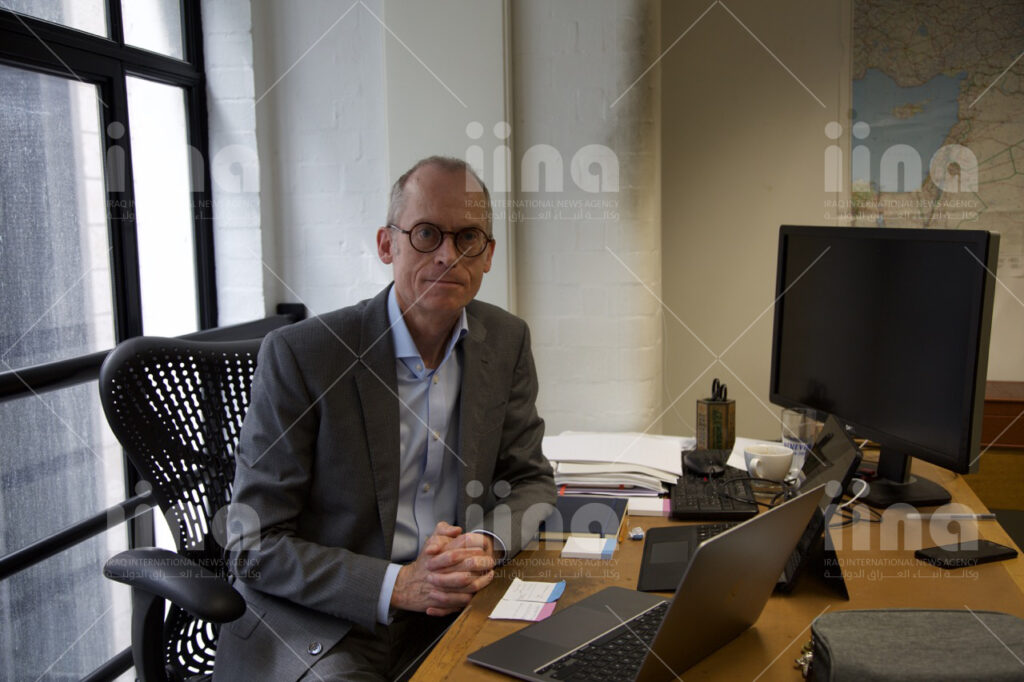
Q7. Due to the destruction of the World Heritage Sites in Iraq, what are the risks that historic and artistic heritage sites are facing today?
Well, of course, Iraq has been through several decades of terrible experience, primarily for the people, of course, but also, their heritage, their identities have been challenged and threatened and destroyed. So, the international community has been interested in thinking about preservation, conservation, recording. But I think where the British Institute is particularly interested is working with people, thinking about their stories, their identities. And we are partners with a research project at University College London called the Nahra Network. And that network is based on the idea of supporting local researchers. Iraqis do their own research on their own histories. So this is about local people taking ownership of their own past, their own identities, and we are there simply to facilitate that research. And we have a visiting scholars scheme where we enable people from Iraq, colleagues in museums, libraries, heritage institutions, universities to come to this country for several months so they can undertake research in this country with colleagues here before then going back and focusing on specific research questions there. So we’ve, I think, turned the model from simply as we’re sending researchers from this country, that’s still part of what we do to ask questions and as it were, think about the answers, but also working very much in collaboration and then supporting our Iraqi colleagues.
Q8. Many people from the UK or internationally go to Iraq to research, but are there local people from Iraq who help out to learn also about their history?
I think it’s absolutely crucial that local people get ownership of their own past, and that’s the only way that really we can hope to protect it. Because, of course, it’s about understanding the value of the past and therefore putting pressure on developers and other individuals who are threatening this heritage to preserve it, and make it accessible and meaningful for local communities. So rather than thinking just for external tourists or for interested individuals in this country, it has to start with local people.
Q9. What kind of actions do you try to take to protect those heritage sites?
I think it is really about the research questions are about learning about those sites, and it’s through that sort of endeavour and then public engagement with what’s found that we raise the awareness of the importance of these sites. And that might be about a potential area for future tourism and so income generation locally, but also other ways in which it can be brought to life as part of communities’ identities. There are many ancient sites in Iraq which used to be a place for picnicking for families, and many people remember going there as children, and so it has a special attachment for them. And so even at that sort of level, of course, raising awareness and drawing on those memories reminds people of this extraordinary resource that is available in Iraq, its heritage of all periods.
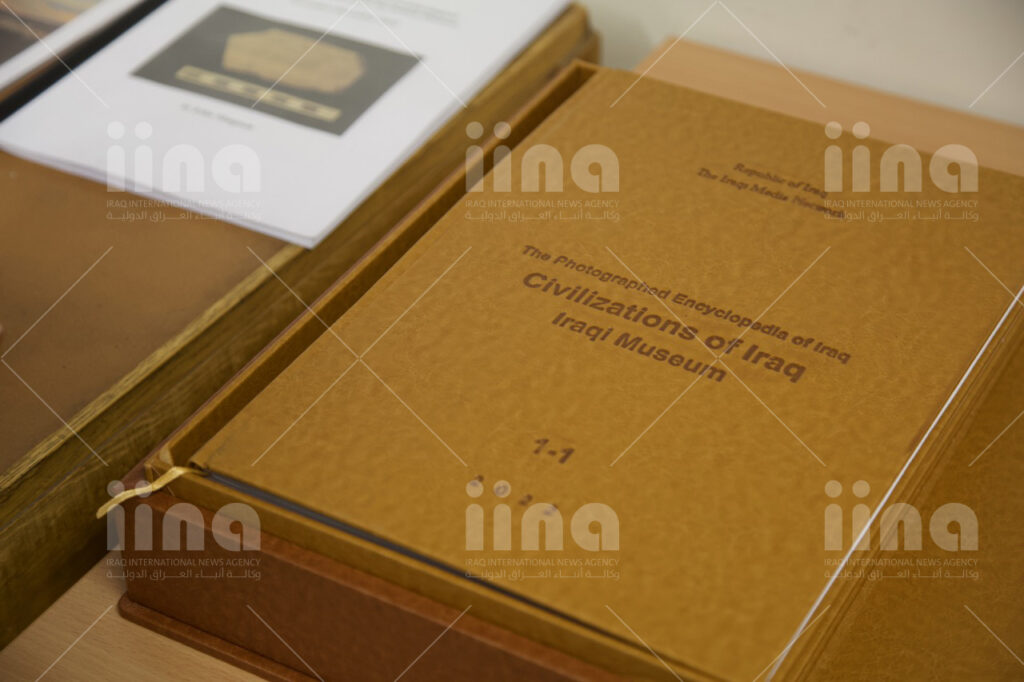
Q10. Are you planning on curating an exhibition on Iraq at the British Museum?
We have some ideas in mind. I don’t think I can say much more than that, but certainly watch this space. We have, of course, had past exhibitions. Most recent one, several years ago now, was on the Assyrians, the great King Ashurbanipal, King of Assyria. That was a focus. So the time is coming when it’s our turn again for an exhibition. And without giving too much away, I think perhaps we’d look south and maybe think about the Sumerians.
Q11. Have you been working with any museums in Iraq?
Yes, very close relationships with museums in Iraq. I mean, we work very closely with the Iraq Museum in Baghdad and recently collaborated over some cuneiform tablets that had been here for study, and they were recently returned to the museum. So, again, that’s an ongoing project. And collaborating further with that. We also are interested in thinking about opportunities for training, both for colleagues from Iraq to come here and experience what happens in the British Museum, but also the other way, too. I mean, there’s much we can learn from the great work that’s going on in museums across Iraq. And I’ve also been involved for many years with the museum in Basra, which was opened in 2016, and that’s continued now really sort of flourishing museum school parties arriving almost daily and just seeing the transformation. And that’s been completely led from the Iraqi side. But the institute has, again, for many years, been helping where it can to enable that to happen. So again, the local museums are as important as the national museums and and helping to raise that profile of local identities as well as the national story.
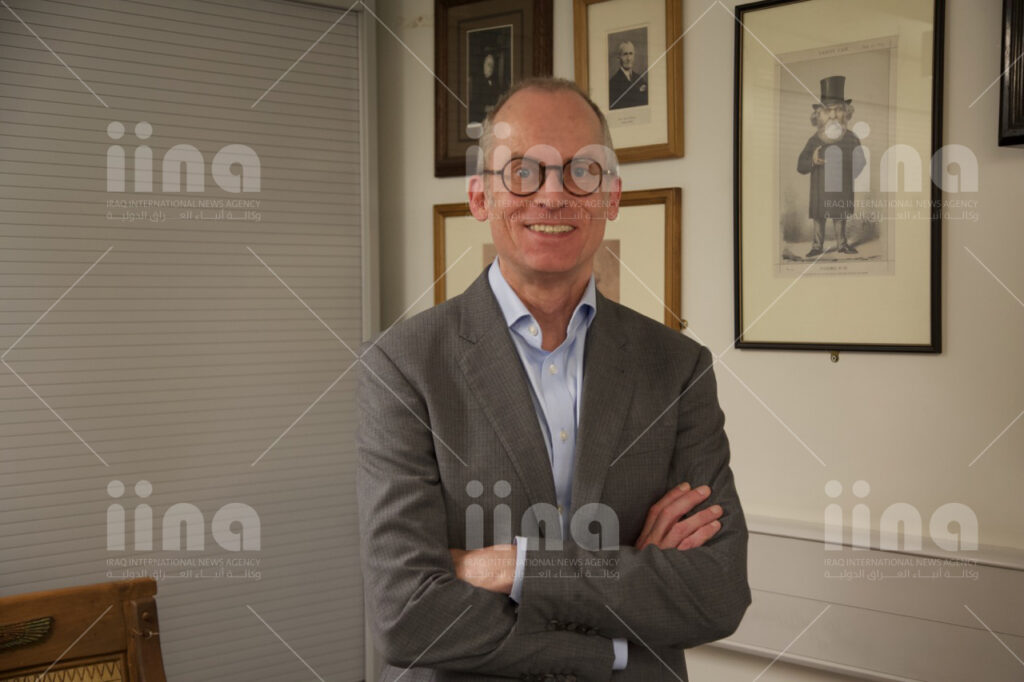
Click HERE to watch the video interview.
- Published: 31st July, 2023
- Date Taken: 19th July, 2023
- City: London
- Country: United Kingdom
- Editor: Elika Bozorgi
- Photography: Vishalakshi Verma
- Category: Heritage

